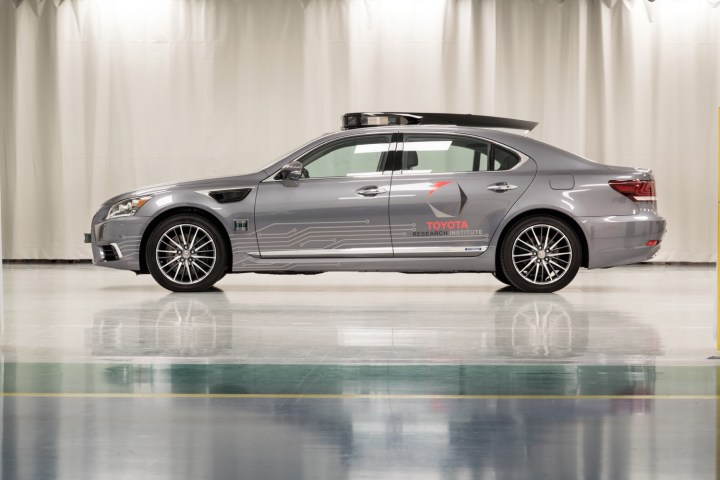
Toyota is putting its brains behind self-driving technology in a serious way — by dedicating a whole subsection of its existing think tank, Toyota Research Institute (TRI), to autonomous vehicles. Meet Toyota Research Institute-Advanced Development, or TRI-AD, a new $2.8-billion company focussed on advancing the development of self-driving technology. TRI-AD will be headed by current TRI Chief Technical Officer James Kuffner (who will now serve as TRI-AD CEO); TRI CEO Gill Pratt will become the Chairman of the Board for the new firm.
While TRI has done plenty of work on its own on self-driving cars, its focus isn’t quite as specific as that of the new entity’s. As TechCrunch notes, TRI works on a wide range of issues, including advanced battery research and robotics. TRI-AD, on the other hand, will look to bring Toyota (and the auto industry at large) up to speed with the possibilities associated with autonomous driving. The goal is to eventually build a team 1,000-employees strong, in an office somewhere in Tokyo. Exactly where operations will commence is still undecided.
Toyota notes that its goals with TRI-AD are to “create a smooth software pipeline from research-to-commercialization, leveraging data-handling capabilities; strengthen coordination with TRI and efficiently link research results to product development; strengthen the collaboration within the Toyota Group in the domains of research and advanced development; and recruit and employ top-level engineers globally, while cultivating and coordinating the strong talent within the Toyota Group.”
It would appear that the ultimate endgame for TRI-AD would be to implement much of the purely academic work that is currently conducted by TRI, helping to bring the theoretical into the physical realm. Given that “product development” is high on the new company’s list of priorities, we expect to see self-driving cars from Toyota soon. While it seems that nearly every car company in the world is now working on and testing self-driving cars (and certainly every technology company), none has established itself as the true leader in the next generation of automobiles. With TRI-AD, the landscape could be changing.

